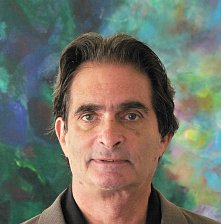This week’s guest blog is by Jon Rappoport. I’ve engaged with Jon Rappoport since 2012 and studied his material on imagination. I’m confident this course in logic is worth the investment.
In two of my collections, The Matrix Revealed and Power Outside The Matrix, I include training in the art of logic and critical analysis.
The basic fact is: students in schools are rarely taught how to follow a line of reasoning from beginning to end. Nor do they practice analyzing half-formed, specious reasoning.
Who teaches young students, these days, how to distinguish between a polemic and a formal argument?
Teachers spend little or no time discussing hidden premises or assumptions, which color subsequent arguments.
Increasingly, people are “learning” from watching videos. Some videos are well done; many others intentionally omit vital data and make inferences based on “shocking images.”
A focused study of logic can illuminate a range of subjects and disciplines. It can suddenly bring perspective to fields of inquiry that were formerly mysterious and impenetrable.
Logic is the parent of knowledge. It contains the principles and methods common to all investigation.
Being able to spot and understand logical flaws and fallacies embedded in an article, essay, book immediately lifts the intelligence level.
Logic isn’t a prison; one isn’t forced to obey its rules. But the ability to deploy it, versus not understanding what it is, is like the difference between randomly hammering at a keyboard and typing coherent paragraphs. It’s the difference between, “I agree with what he’s writing,” and “I know exactly how he’s making his argument.”
In the West, the tradition of logic was codified by Aristotle. Before him, Plato, in the Socratic Dialogues, employed it to confound Socrates’ opponents.
Reading the Dialogues today, one can see, transparently, where Plato’s Socrates made questionable assumptions, which he then successfully foisted on those opponents. It’s quite instructive to go back and chart Socrates’ clever steps. You see logic and illogic at work.
High schools today don’t teach logic for two reasons. The teachers don’t understand the subject, and logic as a separate discipline has been deleted because students, armed with it, would become authentically independent. The goal of education rejects independent minds, despite assurances to the contrary.
Logic and critical analysis should be taught in phases, with each phase encompassing more complex passages of text offered for scrutiny.
Eventually, students would delve into thorny circumstantial arguments, which make up a great deal of modern investigation and research, and which need to be assessed on the basis of degrees of probable validity and truth.
It’s like a climbing a mountain. The lower paths are relatively easy, if the map is clear. At higher elevation, more elements come into play, and a greater degree of skill and experience is required.
My college logic teacher introduced his subject to the class this way: Once you’ve finished this semester, you’ll know when you know, and you’ll know when you don’t know.
The second part of his statement has great value. It enables real research beyond egotistical concerns, beyond self-serving presumptions, beyond secretly assuming what you’re pretending to prove.
